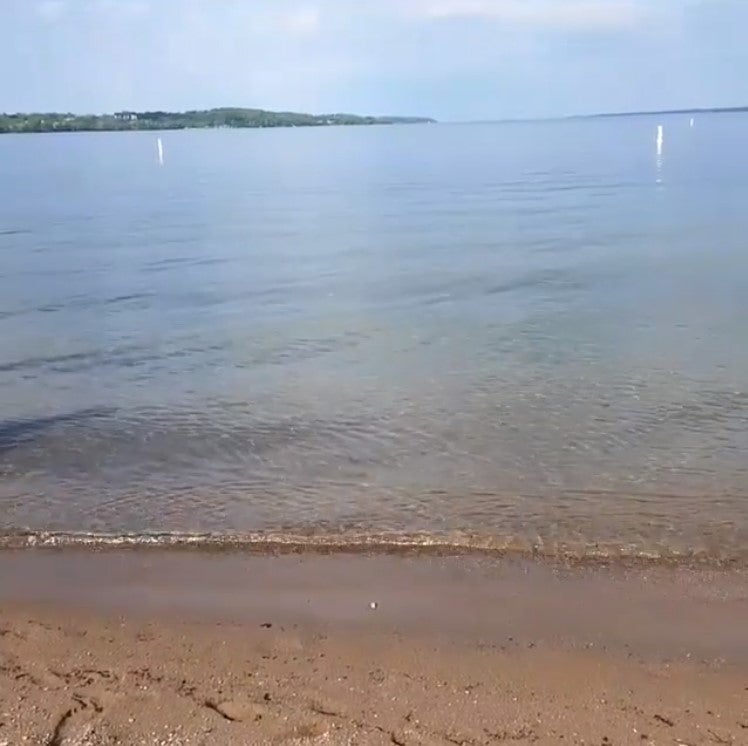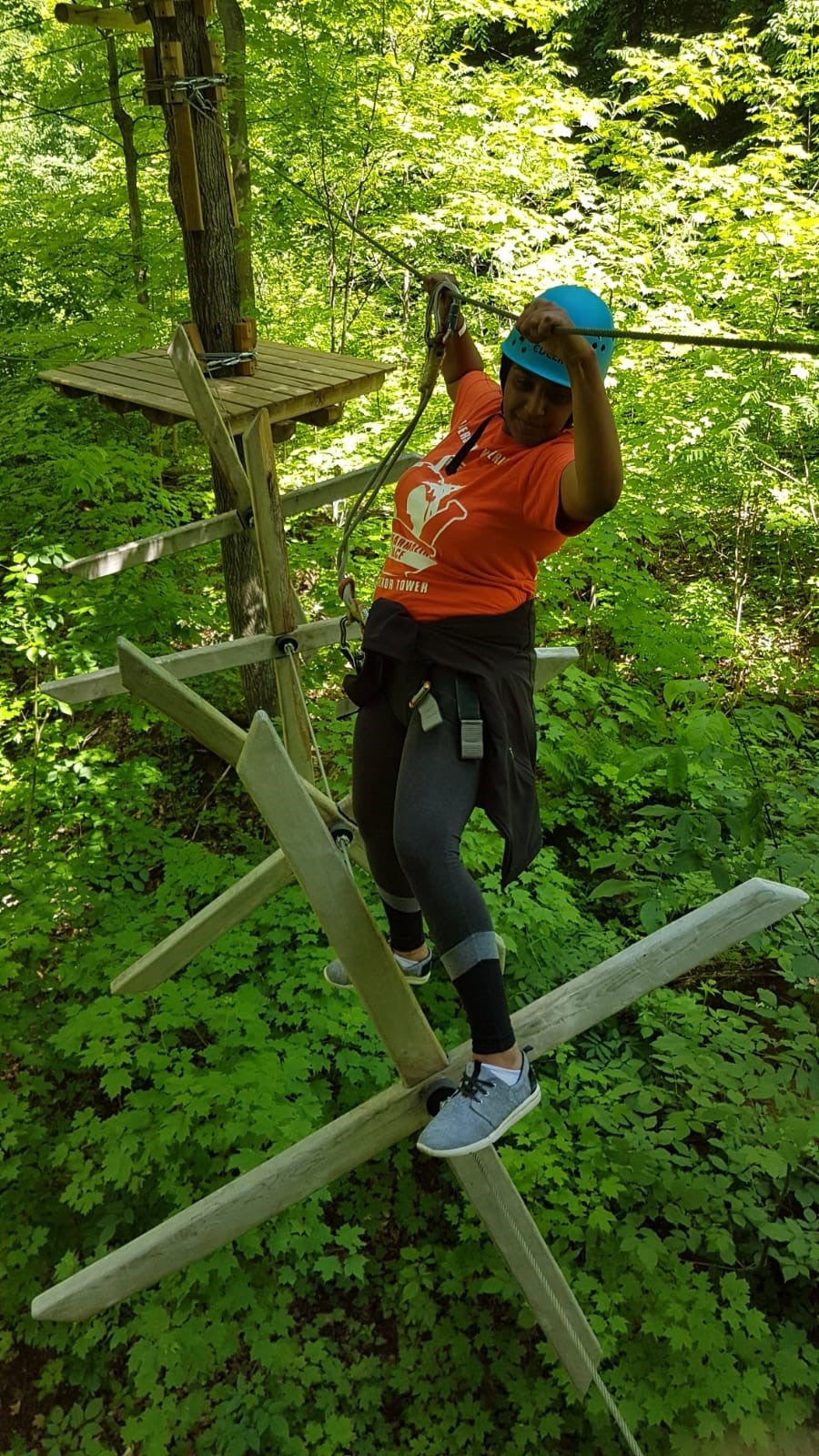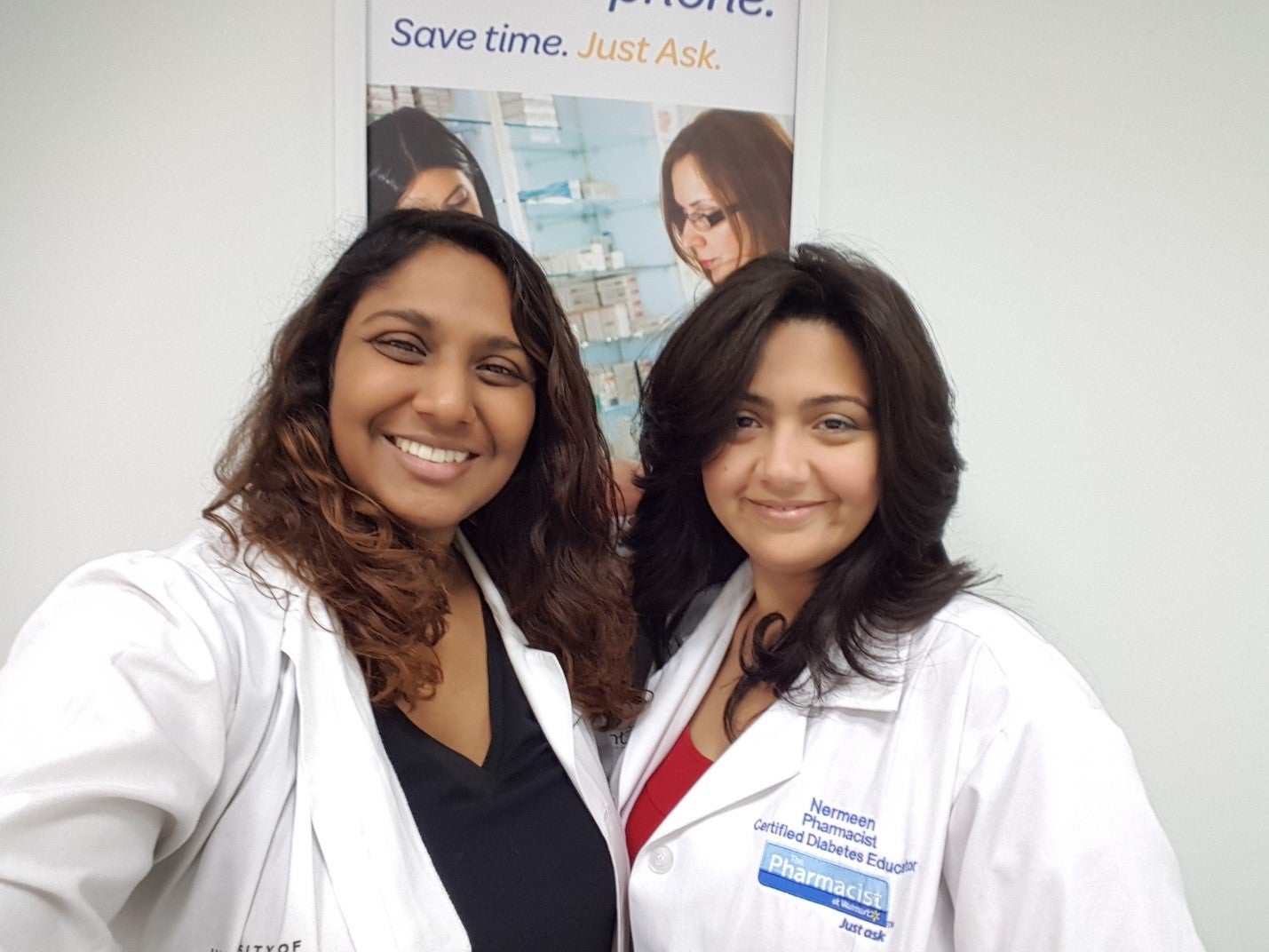Tanisha Jacob, Rx2018 - Barrie
Navigating the region
Barrie is a wonderful region for rotations. It’s small enough that commuting to each of your rotation locations is not an issue, but large enough that there’s plenty to explore. It is quite easy to access different areas of the city, as Highway 400 runs right through the middle. You’re also close enough to larger cities like Toronto, and more northern areas of Ontario which are great for camping and hiking during the warmer months. Blue Mountain and Horseshoe Resorts are both within an hour away and provide activities during both the cold and warmer months.
In Barrie, there are beaches everywhere along Lake Simcoe. There is one beach that is next to downtown, so you can grab something to eat and then walk down to the beach for a swim after. Near the beach, there are many places that have canoes, kayaks, and stand-up paddleboards available for rent. Besides beaches, there are plenty of other things to do, including different restaurants to try, farms that offer pick-your-own, trails for hiking, rock climbing, and treetop trekking. During the warmer months, there are also many festivals and events that occur downtown Barrie, such as outdoor movie screenings and Kempenfest.
Noella is a kind and amazing Regional Clinical Coordinator (RCC). She made sure to keep in touch with the region’s students to ensure that we were all doing well, whether she contacted us through meetings, phone calls or text messages. She was always helpful, and willing to provide a listening ear no matter what your concerns were. She was unbiased and took students’ opinions seriously, focusing on ensuring we had an ideal learning experience. If ever we had a concern about anything, Noella would make sure to contact us and meet up with us if necessary.


Practice site descriptions

Gaining clinical knowledge through studying is one thing, but it’s a completely different experience to apply what you’ve learned in school to the real world. During my rotations, I realized that I did know a lot, but that there was also still a lot for me to learn. Rotations provide you with real-life situations, such as interactions with various health care professionals and help show examples of how to address certain situations. There isn’t always one right way to do things, and hearing about others’ opinions helps to solidify your own. Also, you are still a student during these rotations so never be afraid to make mistakes - you tend to learn more from them.
Advice for future students
My main point of advice is to remember that clinical rotations are the opportunity you’ve been given to solidify the knowledge you’ve gained so far. If you have questions for which you’ve tried to find answers for already but are unable to, make sure you ask your preceptor! Many preceptors are there to help and they understand that you are a student, so they appreciate you taking initiative to learn things on your own and then discuss your findings or further questions with them. In a way, this also helps them refresh their knowledge on these topics too. Be sure to treat your preceptors with respect, but also remember that in a few months they will become your colleagues as well, so don’t be afraid to befriend them. This will also help your career in terms of networking and references. Rotations are similar to an unofficial job interview – be sure to do your best and make the most of it!